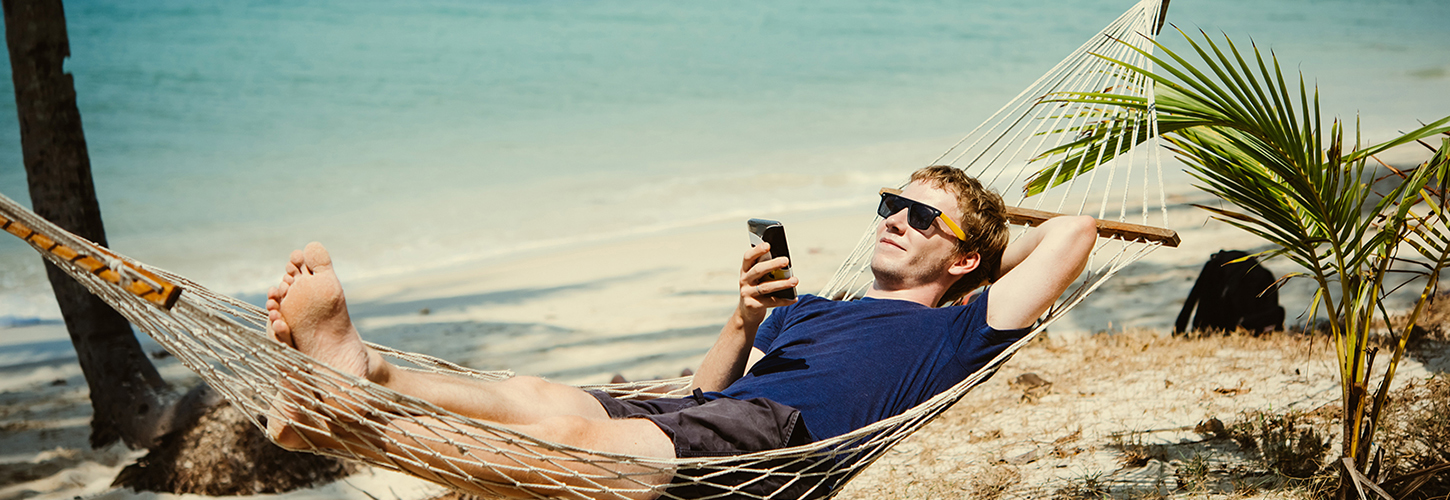Patricia Carswell finds out why it’s important to schedule a proper holiday and how best to dovetail that into your training
There’s plenty to look forward to on the rowing scene all year round , so should you take time out in the hectic summer months and book a holiday?
Dr Chris Shambrook, psychology consultant to the GB Rowing Team, believes that you should.
“Holidays are important for all sorts of reasons – getting a break from work, changing things around, experiencing a different location and investing in something else which is important to you,” he says. “It’s critical to have a balance between work, sport and family, to have something to look forward to and to prioritise other things.”
Perhaps surprisingly, Shambrook doesn’t necessarily recommend a digital detox: it’s all about how and why you’re using your technology.
“If it feels good to be on your phone and you’re getting a positive benefit out of it rather than being driven by fear of missing out, or being a slave to your device, it’s fine; try to understand your drivers and reasons for doing it.”
Equally there are no rules around how long you go away for: a series of mini-breaks can be just as valid as a two-week block.
“It’s about working with what’s right for you. Whatever you do, work out how to get the most out of it. If you have lots of little holidays, ask what it looks like to get the most out of those regular reset points – to make sure you enjoy the opportunity as much as you can. In the same way if you’ve got a big block, think about how to make the most out of this consolidated period doing something different.”
The kind of holiday you should choose – vegging out by the pool, expanding your mind on a cultural tour or staying fit on an active break – is entirely down to personal preference, according to Shambrook. “When the senior squad do get the chance to go on holiday there’s so much diversity in what I see them doing and I find that refreshing.”
“It’s critical to have a balance between work, sport and family”
One of the biggest struggles when going on holiday is coping with the mad rush to get everything done before and the tsunami of emails and commitments when you get home.
Shambrook advises careful forward planning. “If you’re part of a team, look in advance to see when people are on holiday and take a collaborative approach to covering for each other. If you can, give yourself a couple of days before you leave without many meetings and commitments so you can close everything down and take stock.”
If you’re swamped with work when you return, don’t panic. “Be curious with it. Wonder how well you can pick back up without putting pressure on yourself to be instantly up to speed. Put things in your diary in the first couple of days to help you reconnect, get your routine in place and get your head back into appropriate thinking.”
Many rowers worry about the effect a holiday will have on their fitness. Certainly, being completely sedentary for two weeks will have an impact, according to Julia Buckley, one of the UK’s best known fitness trainers.
“After two weeks of little use, muscles will physically begin to shrink in size. Research suggests the effect is more pronounced for athletes and highly-trained people. This is probably because they have more fast-twitch muscle tissue which tends to diminish sooner so this is definitely something which could affect rowers.”
Sometimes, though, a complete break is just what you need, says Buckley. “Even though you might lose an edge of fitness, if you’ve been training hard without breaks for a long time, the trade-off between that and allowing your body to recover could well be worth it. If down-time is something you need to de-stress it could well be beneficial to your training in the long run.”
Walking and swimming are great for keeping your fitness ticking over while you’re away as is running. “It’s an easy way to slip exercise into a holiday itinerary. If you’re at the beach, running on the sand can help up the intensity without adding as much impact as running on hard surfaces.
When you get home, try to avoid plunging straight back into your normal regime: it could leave you sore or injured. “Play it smart and ease back in,” says Buckley.
Above all, even if you’ve overindulged on holiday, don’t beat yourself up. “Be happy that you had a great holiday and just get on with what needs to be done. A couple of weeks off training or eating differently won’t hold you back in the long term and could be beneficial.”
This article first appeared in Rowing & Regatta magazine in April 2017.
Photo credit: Shutterstock










